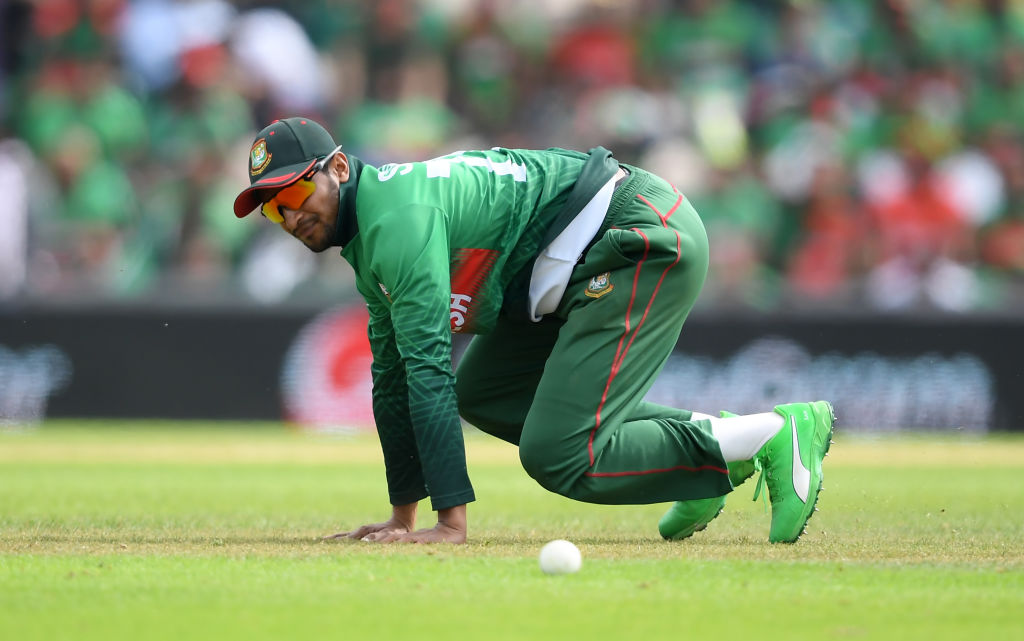Shakib’s ban a lesson in accountability for senior professionals

For Bangladeshis all over the world, Shakib Al Hasan is a name that evokes emotions. A cricketer that has given Bangladesh cricket self-esteem and made them a potent force in world cricket, Shakib means much more to Bangladesh than any other legends of the sport meant to their countrymen.
Sachin Tendulkar was worshipped in India, MS Dhoni’s cult exceeded his exploits on the field and Sir Vivian Richards is still the “biggest boss” who has never been criticised for anything. However, it would take only one visit to Dhaka’s Bangabandhu Stadium to realize the stronghold that Shakib has over his countrymen. He is their main man, their only beacon of hope when the team needs a wicket or is in search of some ugly runs in the face of a top-order collapse. Shakib was everything that Bangladesh was jealous of in the past, and when they found him, they latched on to him like never before.
It was Shakib who was at the forefront of Bangladesh achieving everything that they did: from reaching the Champions Trophy semi-final to World Cup quarter-final to making them a potent force in Asia Cup. On top of that, he had the tag of 'No.1 all-rounder of the current era' firmly attached to his name, too. It is natural to feel sad that a cricketer of his ability could never be a part of a world-beating team, but he did all he could.
All this brings a pertinent question, how could he be so naive about something as basic as reporting a corrupt approach? Not once, not twice, but there have been three alleged instances in which Shakib had failed to report the approach, despite clearly knowing the procedure and protocols. He has been the captain of the team in Tests and T20Is for as long as one can remember, and saying Shakib didn’t know that 'non-reporting' was a serious offence is utterly ridiculous.
More than the failed reporting, it was Shakib’s confusing conversation with Indian Bookie Deepak Aggarwal and few deleted messages from WhatsApp that makes the case study an interesting one to observe. Shakib wanted to meet him, and never outrightly said NO, but he didn’t bring that to the notice of the Anti Corruption Unit. What makes the thing even more complicated is the fact that one of the corrupt approaches was during the Indian Premier League - a league that has its own history when it comes to spot-fixing and betting.
For what he did in the last World Cup, it is indeed sad that we would not be able to see one of the finest modern-day cricketers in action for at least a year, and in the worst-case scenario, for a couple of years. It is also sad because it is not actually about match-fixing, rather about the lack of accountability of a senior professional. It is also about integrity and fairness, about beauty, bravery and flair, and about everything that brings a smile to millions of faces during the time of despair.
The wrongs that Shakib committed should have a catastrophic impact on the game for the simple fact that it is the need of the hour. Education is a must, but it should walk the rope alongside fear. In one of the Cricinfo blogs, Harsha Bhogle raised a very interesting point post the 2013 IPL spot-fixing scandal that suits the current context pretty brilliantly.
“I was so disappointed that the probe of 1999-2000 was never made public. By burying it, Indian cricket was let down. It cannot happen again. The scandal of 1999-2000 now exists in whispers. The 2013 episode cannot, and that is why as painful as it might be, a greater churn will produce a long-term gain. It might lead to better systems, greater transparency, maybe even a law against fixing. Scams made systems more rigorous in the money markets. They could in cricket, which, I suspect, is still much cleaner than the stock markets are.”
It might be sad, but by banning the Bangladesh all-rounder, albeit through the normal protocol, the ICC has set a wonderful precedent. As long as fear walks the rope, ultimately, it would be the sport and its cricketers that would benefit from this incident. Lessons will be learnt and by the time the southpaw returns to the game, he would be at a real vantage point to teach the world the importance of owning up, and more importantly, taking accountability. The sport might be a loser now for losing one of its superstars, but ultimately, it might become the winner too, for the ban will have a serious impact on it.
